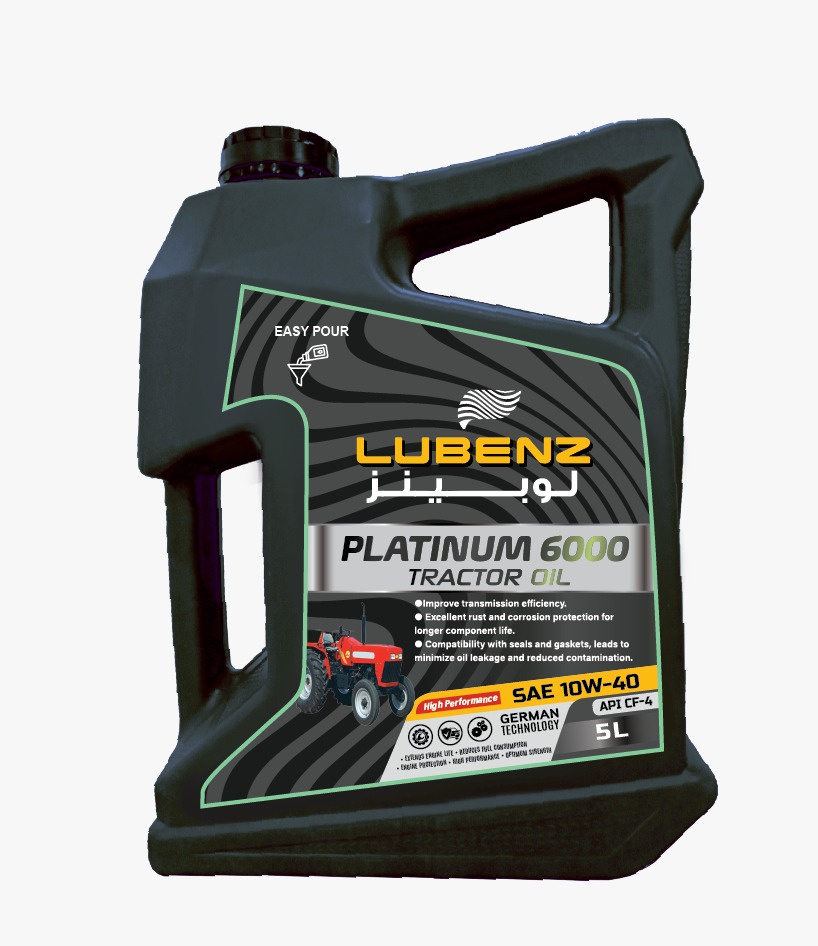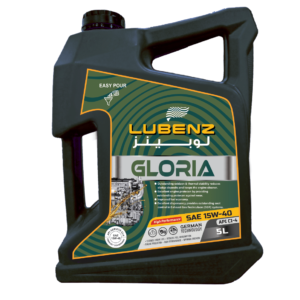LUBENZ PLATINUM 6000 TRACTOR OIL series are extra high performance multipurpose tractor lubricants formulated from highly refined base stocks and advanced technology additive system, to meet or exceed transmission and hydraulic fluid requirements. These oils are engineered to deliver the varied lubricant performance properties required in severe duty applications of agricultural and construction equipment drive trains. Moreover it is particularly well suited for reducing wet brake and Power Take-Off (PTO) chatter.

PLATINUM 6000 TRACTOR OIL
Applications
LUBENZ PLATINUM 6000 TRACTOR OIL series meets or exceeds following International and Builder specifications:
- API GL-4, CG-4, CF-4, CF, CE/SF, CD/SF, CD/SE • Vickers 35VQ25/ Wet Brakes Volvo WB 101
- Allison C-4/ACEA E3/MB 228.1 • CNH MAT 3525,3526
- John Deere J20C/J20D • Caterpillar TO-2
- Sperry Vickers/Eaton: M2950S, I-280-S • JI Case MS 1204,6,7,9
- Ford M2C134D/M2C86B, C • Massey Ferguson: M1135/M1143/M1145
Application
LUBENZ PLATINUM 6000 TRACTOR OIL series are suitable for use in:
- Heavy-duty transmissions, differentials, final drives, hydraulic systems, power steering systems, wet brakes, PTOs, hydrostatic drives, powershifts & CVTs.
- Off-highway industries including agriculture, construction, and quarrying.
- Applications requiring API GL-4 or SAE 80W grade lubricants in gear applications, except hypoid gears.
Characteristics
| LUBENZ PLATINUM 6000 TRACTOR OIL |
Test Method |
Units |
10W30 |
15W-40 |
20W-40 |
| Density @ 15 0C |
ASTM D 4052 |
gm/cc |
0.870 |
0.875 |
0.888 |
| Viscosity @ 40 0C |
ASTM D 445 |
cSt |
59 |
103 |
107 |
| Viscosity @ 100 0C |
ASTM D 445 |
cSt |
9.6 |
14.30 |
14.30 |
| Viscosity Index |
ASTM D 2270 |
– |
146 |
142 |
136 |
| Pour Point |
ASTM D 97 |
°C |
-39 |
-36 |
-33 |
| Flash Point (COC) |
ASTM D 92 |
°C |
218 |
225 |
230 |
| CCS Viscosity |
ASTM D 5293 |
cP |
5550 @ -25 °C |
6000 @ -20 °C |
6020 @ -15 °C |
| Total Base Number |
ASTM D 2896 |
mg KOH/g |
10.5 |
10.5 |
10.5 |
| Zinc |
ASTM D 4951 |
%wt |
0.12 (Min) – 0.19 (max) |
The above figures are typical of blends with normal production tolerance and do not constitute a specification.



